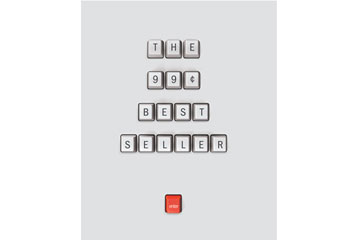
(5 of 8)
Konrath was one of those writers who spent years chasing the possibility of a publishing contract before an agent found one of his novels in the slush pile. He signed a publishing deal with Hyperion Books, but despite great effort never became a best-selling star, and Hyperion dropped him. When another contract, with Grand Central Publishing, came to a premature end in 2010 after his editor refused to publish a horror novel without major changes, Konrath went independent. He calls self-publishing a "peasant uprising," and his rants against the industry have won him a vociferous following. Inside the publishing industry, many see him as embittered. "A lot of the people who are debating [self-publishing] are people who didn't have the success that they dreamed of, who are disgruntled," says Jamie Raab, the head of Grand Central, a past target of his vitriol.
Konrath, who this year wrote a blog post addressed to the industry with the headline AMAZON WILL DESTROY YOU, makes no apology for picking a side. "We've all been in abusive relationships," he says, "and now we're with somebody who says, 'What are your needs and how can we better meet them?'"
There's no doubt, though, about who's the dominant partner. Although it has competitors--Apple, Barnes & Noble, specialized start-ups like Smashwords--Amazon rules the self-publishing world, and indie writers give it their ardent attention. Konrath and his comrades have come to the conclusion that traditional methods of marketing--interviews, book tours--have little influence compared with the hidden workings of Amazon's algorithm, which uses customer behavior to produce buying recommendations and search-engine results. If you are a young-adult writer, for instance, your fantasy is a link on the Hunger Games page. But even the most successful self-publishers aren't sure how you get there. "Amazon is a really good name for it," Crouch says. "Because it is vast and mysterious and really ultimately unknowable."
Though no one outside Amazon can say for certain, it appears that the algorithm heavily weights recent sales, and sites like Kindleboards are full of tips for gaming the system. The easiest involve offering a book for 99--a price that generates little revenue but is great for promotion--or giving it away free via the Amazon Prime loyalty program, which can catapult a book up the rankings. The big prize is a place on Amazon's overall top-100 list.
Similarly important are buyer reviews, which seem to affect the all-powerful algorithm. Inventive authors have discovered many ways to obtain positive ones, with some going so far as to pay companies to generate five-star raves. "The idea that people are trying to understand how the system works and figure out how to amplify the signal for their books is not new," says Russell Grandinetti, Amazon's vice president for Kindle content. Traditional publishers, for instance, have long paid booksellers like Barnes & Noble to feature new releases on the front tables of stores. While Amazon generally keeps its distance from the algorithmic speculation, like a parent presiding over a treasure hunt, it polices the avaricious extremes of the market.
